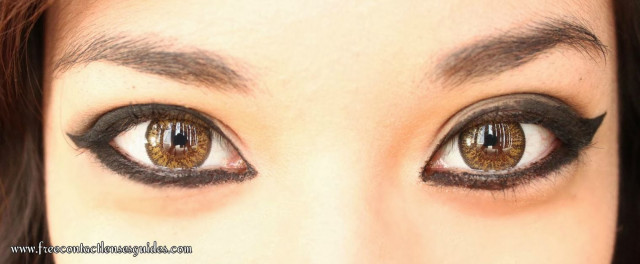6 scary reasons your eyes could be acting weird
Find out why your eyes could be acting up

PHOTO: FILE
"Nothing in your body is in a box," says Deborah Herrmann, M.D., assistant professor of clinical ophthalmology and attending physician at Scheie Eye Institute at University of Pennsylvania's Perelman School of Medicine. "Your eyes are connected to your central nervous system and everything else. Something that's affecting your body can be affecting your eyes as well."
Compiled from Women’s Health, here is a list of six freaky reasons your eyes could be acting up.
1. High cholesterol
"Someone with high cholesterol can have transient vision loss that comes and goes, like a curtain or shade coming and going over their eye," says Herrmann. This is a sign your carotid artery is plugged with plaque and struggling to get blood to your eye. You may also have eye pain, notice a grey ring around your cornea (called an arcus senilis), or have trouble adjusting to bright light. In some cases, yellowish cholesterol deposits called xanthelasma can show up on your eyelids or in the corners of your eye socket.
4 parenting tips for when you're emotionally overwhelmed
2. Thyroid problems
Your thyroid is a butterfly-shaped organ in your neck, and it controls certain hormones that help control your growth and metabolism. If your thyroid isn't functioning properly it can lead to a host of problems, which sometimes includes swollen eye muscles and congested eye sockets that cause your eyes to bulge out and look bigger than usual, says Herrmann. You might also have double vision.
Graves' disease, an autoimmune disorder that affects your thyroid, can make your eyelids retract, which can also make your eyes look bigger than usual. If your eyelids retract enough that you can't close your eye, you may develop dry eye, since your lids can't keep moisture in.
3. Diabetes
Regular eye exams are a good idea for anyone, but it's a must if you have diabetes or are at high risk for the disease. "Diabetes can make the macula—the part of the retina that controls your central vision—swell or retain fluid or fluid," says Herrmann. While you might not completely lose your vision, she says, you'd definitely notice a change for the worse. People with diabetes are also 40% more likely to get glaucoma and 60% more likely to get cataracts, and they should be on the lookout for diabetic retinopathy—a set of disorders that affect the light-sensitive part of your eye. Retinopathy can cause problems like blurry vision or even retinal detachment.
6 tips to make your office better
4. Stroke
Sudden loss of sight is startling—and for good reason. It could be a sign that you're about to have a stroke, or that you've already had one. Normally, vision loss from a stroke happens in one eye only, but it can happen in both, causing blindness. Sometimes strokes damage the nerves that move your eyes, which can make you see double.
Strange as it sounds, it's also possible to have a stroke in your eye only. This is called a retinal stroke, and it happens when blood vessels in your retina are clogged with plaque. You're more likely to get a retinal stroke if you have high blood pressure or carotid artery disease. Any kind of stroke is serious and calls for immediate care, so call 911 if you suddenly go blind in one or both eyes.
5. Retinal migraines
Temporary blind spots in your vision could mean you're having a migraine of the eye. This isn't the same as a headache-type migraine. Retinal migraines cause "blank spots" in your vision called scotomas. "[The blind spots] only last for a certain number of minutes, and you may or may not have pain," says Herrmann. You may also see flashes of light, have blurry vision, or get a headache before or after your eye symptoms. If it happens repeatedly—especially if it only impacts one eye—see an eye doctor to get checked out.
6. Autoimmune Disease
Got droopy eyelids? It could be a sign of an autoimmune disorder called myasthenia gravis, which can cause muscle weakness that makes it hard to open your eyes all the way. Meanwhile, lupus and certain types of arthritis can lead to uveitis, an infection in the layer of your eye called the uvea. And eyesight changes are sometimes a clue that you should get screened for multiple sclerosis. "If you develop decreasing vision in one eye over the course of a few days or weeks and you have pain in or around one eye—especially when you move it—it could be your first presenting sign of MS," says Herrmann.
Have something to add in the story? Share it in the comments below.



















COMMENTS
Comments are moderated and generally will be posted if they are on-topic and not abusive.
For more information, please see our Comments FAQ